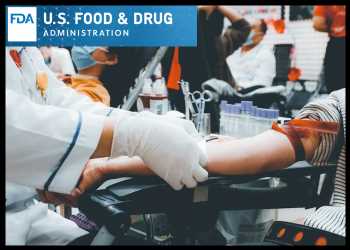FDA Recommends Risk Assessment Questionnaire To Determine Eligible Blood Donor

The U.S. Food and Drug Administration has finalized recommendations for assessing blood donor eligibility using a set of individual risk-based questions to reduce the risk of transfusion-transmitted HIV.
These questions will be the same for every donor, regardless of sexual orientation, sex or gender.
FDA has directed blood establishments to implement these recommendations by revising their donor history questionnaires and procedures.
FDA said it updated its policy on blood donor eligibility based on the best available scientific evidence and in line with policies in place in countries like the United Kingdom and Canada.
The agency expects that this will potentially expand the number of people eligible to donate blood, while also maintaining the appropriate safeguards to protect the safety of the blood supply.
“The FDA has worked diligently to evaluate our policies and ensure we had the scientific evidence to support individual risk assessment for donor eligibility while maintaining appropriate safeguards to protect recipients of blood products,” said said Dr. Peter Marks, director of the FDA’s Center for Biologics Evaluation and Research. The implementation of these recommendations will represent a significant milestone for the agency and the LGBTQI+ community,” he added.
This policy eliminates time-based deferrals and screening questions specific to men who have sex with men (MSM) and women who have sex with MSM. Under the final guidance issued today, all prospective blood donors will answer a series of individual, risk-based questions to determine eligibility. All prospective donors who report having a new sexual partner, or more than one sexual partner in the past three months, and anal sex in the past three months, would be deferred to reduce the likelihood of donations by individuals with new or recent HIV infection who may be in the window period for detection of HIV by nucleic acid testing.
Additionally, under these final recommendations, those taking medications to treat or prevent HIV infection will also be deferred.
The FDA said it strongly believes the implementation of an individual risk-based approach will not adversely affect the safety or availability of the U.S. blood supply.
Source: Read Full Article
